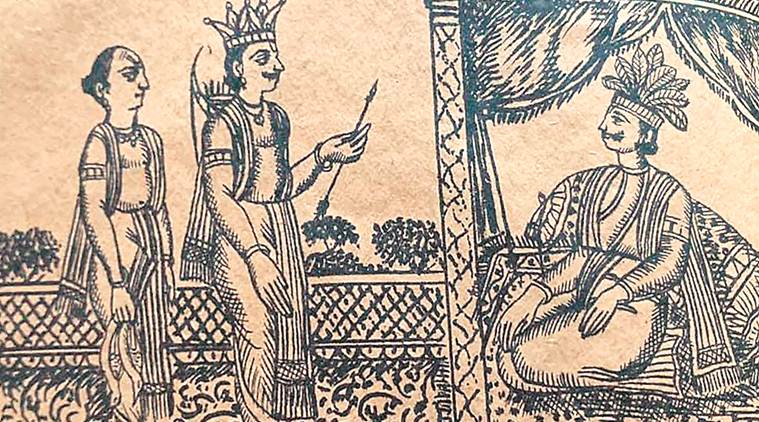Migrations in Verse: Lovers of Urdu gathered to read poetry on Lord Ram and the Ramayana
An evening organised by author, translator and literary historian Rakhshanda Jalil, in New Delhi recently, had lovers of the language read from well-known literature.
 A glimpse of the Urdu Ramayana
A glimpse of the Urdu Ramayana
In his poem Ram, Urdu poet Allama Iqbal terms the deity as ‘Imam-e-Hind’, the prelate of India, in whose existence the entire country took pride in. The poet calls Ram zindagi ki rooh (the soul of life) and roohaniyat ki shaan (the pride of spirituality). For Iqbal, Ram, the great warrior king, was “humane” and “morally upright”. Urdu poetry is replete with references to Lord Ram and the episodes from The Ramayana. An evening organised by author, translator and literary historian Rakhshanda Jalil, in New Delhi recently, had lovers of the language read from well-known literature. These included Rashmi Aggarwal, Jonathan Gill Harris, Fouzia Dastango, Chinna Dua, Zehra Kazmi, Kartikeya Pradhan, Arnav Diwan and Vidit Singh.
The rendition of Iqbal’s poems by Aggarwal, Delhi-based Sufi singer, had the audience hooked to her intonations. In one line, Iqbal says, “Labrez hai sharaab-e-haqeeqat se jaam-e-hind/sab falsafi hain khitta-e-maghrib ke Raam-e-hind (the goblet of India is brimful with the wine of reality/The philosophers of the West only echo Hind’s Ram).
“There are over 300 Ramayanas written in Urdu, many in Urdu verse known as manzum Ramayanas. The event was meant to showcase a sampler from the verse Ramayanas as well as the reams of poetry written on Ram, Sita, Urmilla, Lakshman and the other dramatis personae,” says Jalil. Conceptualised and curated by Jalil, “Kahani Ram-e-Hind Ki” was held at the India Habitat Centre. Its organiser, Hindustani Awaaz, promotes Urdu zubaan and tehzeeb through content-based programming.
Gill Harris, professor of English at Ashoka University, recited Kaifi Azmi’s Doosra Banwaas. The poem imagines Ram coming back to Ayodhya on December 6 and feeling exiled again after he is a witness to the dance of madness (raqs-e-diwangi) in his Capital. “It was written immediately after the destruction of Babri Masjid in 1992, but it resonates all the more now in a time when the name of Ram has been weaponised by Islamophobic mobs in ways that make a mockery of him,” says Harris.
Before his recital, Harris said, “Urdu includes so many different variations, but also words that have migrated from so many other languages. It makes room for everyone because it is a true rekhta or mixture.”
A young student, Zehra Kazmi, recited a poem by Tripurari, a Mumbai-based contemporary Urdu poet. Titled Urmila, the poem is about Lakshman’s wife and Sita’s sister. When Lakshman decides to accompany Ram in exile, leaving Urmila alone in Ayodhya, a desire tossed in pain (tadapti aarzoo) would have fallen from Urmila’s lips to the floor, broken into a thousand shards. The poet says that there is no part of the epic that is not drenched with her tears, and yet there is no trace of her pain anywhere.
- 01
- 02
- 03
- 04
- 05



























